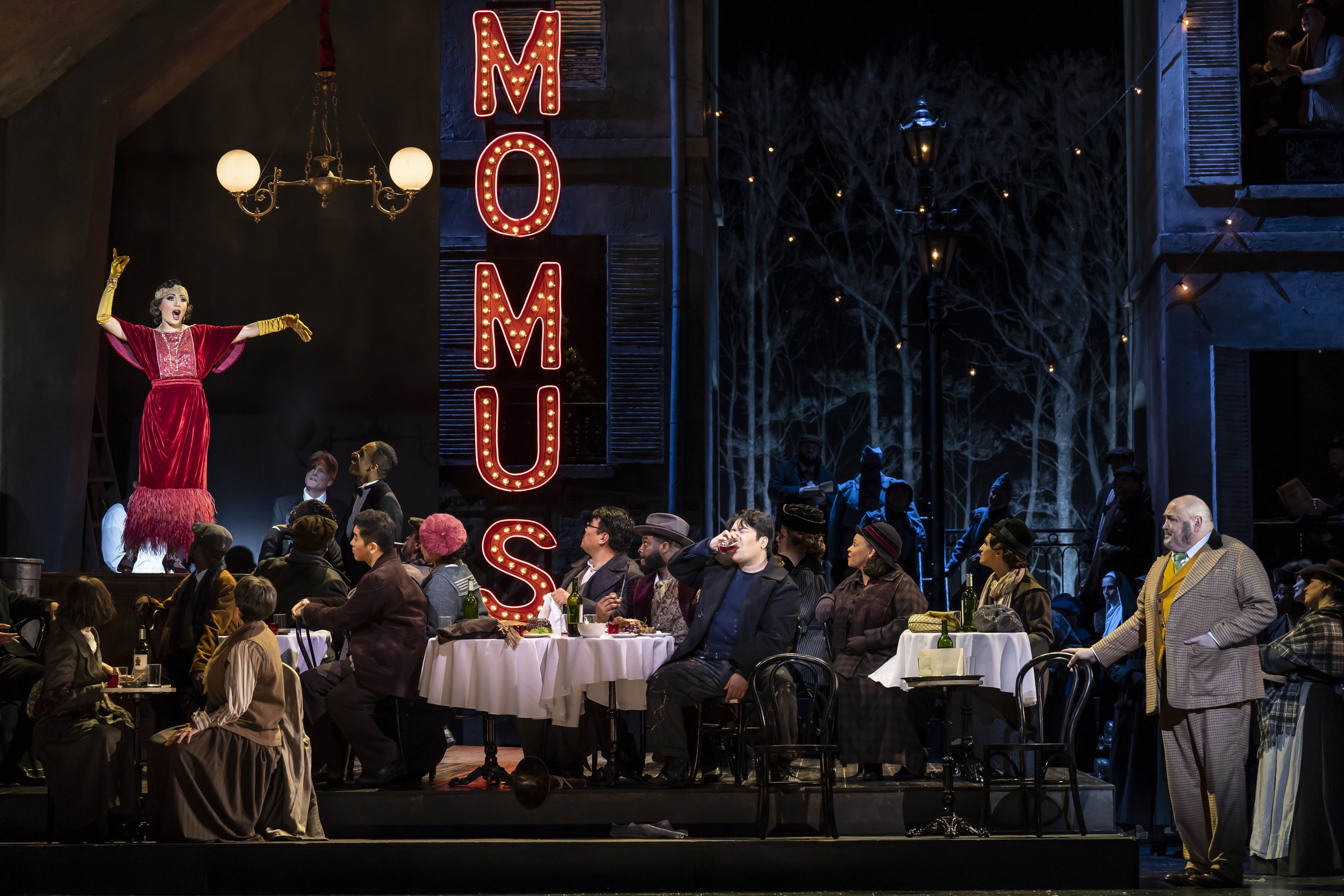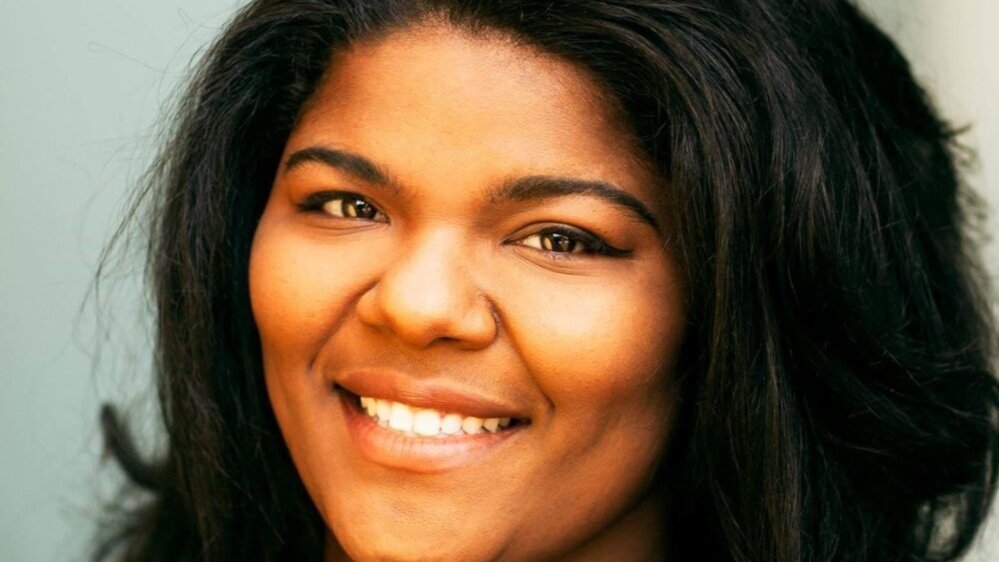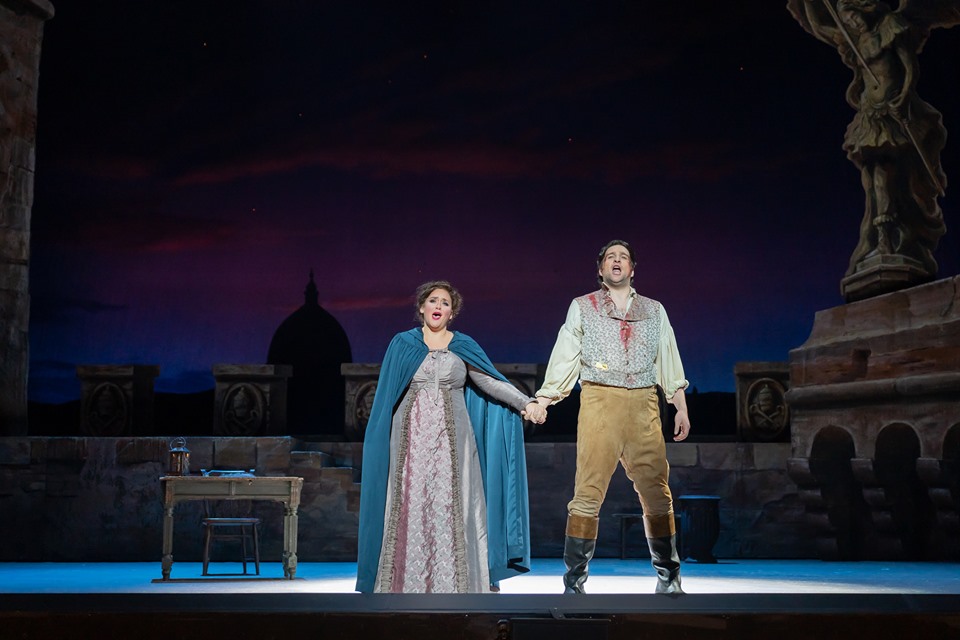WNO's La bohème

Sometimes it’s worth remembering that it is always somebody’s first time at the opera, and often - very often- that first time is a performance of Puccini’s La bohème. As an introduction there is probably no better choice apart from Carmen, Madama Butterfly, or Rigoletto, but all of those works contain subtexts that might turn people off in this day and age. Most of the standard rep of the operatic canon has some sort of problematic material by today’s standards, and I suppose some argumentative twit might point out how affordable health care for all and universal basic income might have saved poor Mimi, but I think most of us can still enjoy Puccini’s story of starving young artists in love for what it is, especially because the music is so damn good. No other opera has so many great tunes.
That’s led opera companies to treat La bohème — and its popular peers— as a cash cow in the same way ballet companies view the works of Tchaikovsky: present it and they will come. The results are often productions that are serviceable and even pleasant, but not especially inspiring, especially if one has already seen a marvelous version of these works at some earlier point in their lives. In opera circles, those who have had such experiences often feel compelled to tell others how great things used to be — that this or that production with this or that singer was the greatest thing ever, and everything since that magical era is appallingly inferior. They’re the equivalent of sports fans who watch NBA games and say “Yeah, Curry and LeBron are good, but you should’ve seen the Bulls when Jordan was at his peak (or worse, the Lakers and the Celtics of the 1980s).
I’ve seen a lot of Bohèmes. A couple were truly great and brought tears to my eyes, many were so-so and just made me swallow hard during “Mi chiamano Mimì” but nowhere else, and a few that were pretty dismal and left me wondering why I went in the first place. But what keeps me going back, time and time again, is knowing that this opera has the potential to put a lump in one’s throat like no other in the canon.
For me, Washington National Opera’s current production fell short of my hopes, if not my expectations, but I suspect for many in the audience it was enough to plant the bug. Sometimes that’s enough, because apart from seeking that transcendent feeling that nothing else but opera can deliver, what serious opera enthusiasts want most is for other people to feel the bite of that bug. That’s why we bring first-timers, and why we go back, over and over again, to see Bohème, Butterfly, and Carmen.
Saturday night’s opening performance was sold out, and as part of WNO’s gala, much of the crowd was dressed as if it was opening night of the season (unaware of the gala connection, we were definitely not). It’s been years since I’ve seen such a well-dressed audience, and my experience has been that such audiences are not particularly attentive to what’s happening onstage, but this was not the case on Saturday night. The audience was both attentive and appreciative. Thanks to everyone, except the guy humming along a few seats away from us.
This is a respectable production, but not a great one. Conductor Alevtina Ioffe, making her WNO debut, wisely supported the abilities of the cast instead of trying to put her own stamp on a well-known work. The results were shifts in tempo that felt somewhat helter skelter during the first act— cautious and slow for the men of the cast as they are gradually introduced and using a noticeably quicker pace once Mimi (Gabriella Reyes, in her WNO debut) and Rodolfo (Kang Wang) were alone on the stage. Rodolfo’s pals — Gihoon Kim (Marcello, WNO debut), Blake Denson (Schaunard, WNO debut), and Peixin Chen (Colline) — managed to capture the lyrical tone, but enunciation seemed a challenge in spots. Wang has a warm, pleasing tone and well-honed acting chops. Reyes is the real deal, with a clear, strong voice that fills the hall. For my taste she leans too heavily into her vibrato, but she is definitely a singer to watch. The same can be said for Jacqueline Echols (Musetta), whose performance was the most assured of the cast — the role calls for Musetta to command attention, but Echols made it look easy. In roles of the hapless landlord and would-be sugar daddy, Peter Rose (another WNO debut), acquitted himself nicely as the bohemian’s foil.
What this Bohème lacks is a sense of passion at its core. That’s not to say the principals are disengaged - everyone seems to be on the same page — but it’s a Bohème from the head, not the heart. That’s not a bad way to spend an evening, nor is it the worst kind of introduction to a masterpiece, but that doesn’t mean it doesn’t leave one wanting more. Peter Kazaras’ direction was tight, and his choices at the end of the third act added poignancy of the story. Well done, sir.
WNO’s La bohème continues at the Kennedy Center Opera House with performances on May 14, 15, 19, 21, 24, 26, and 27. The performances on May 14 and 26 feature singers from Cafritz Young Artist Program, and these are an especially good bet for La bohème.
Photo by Scott Suchman, courtesy of WNO.





